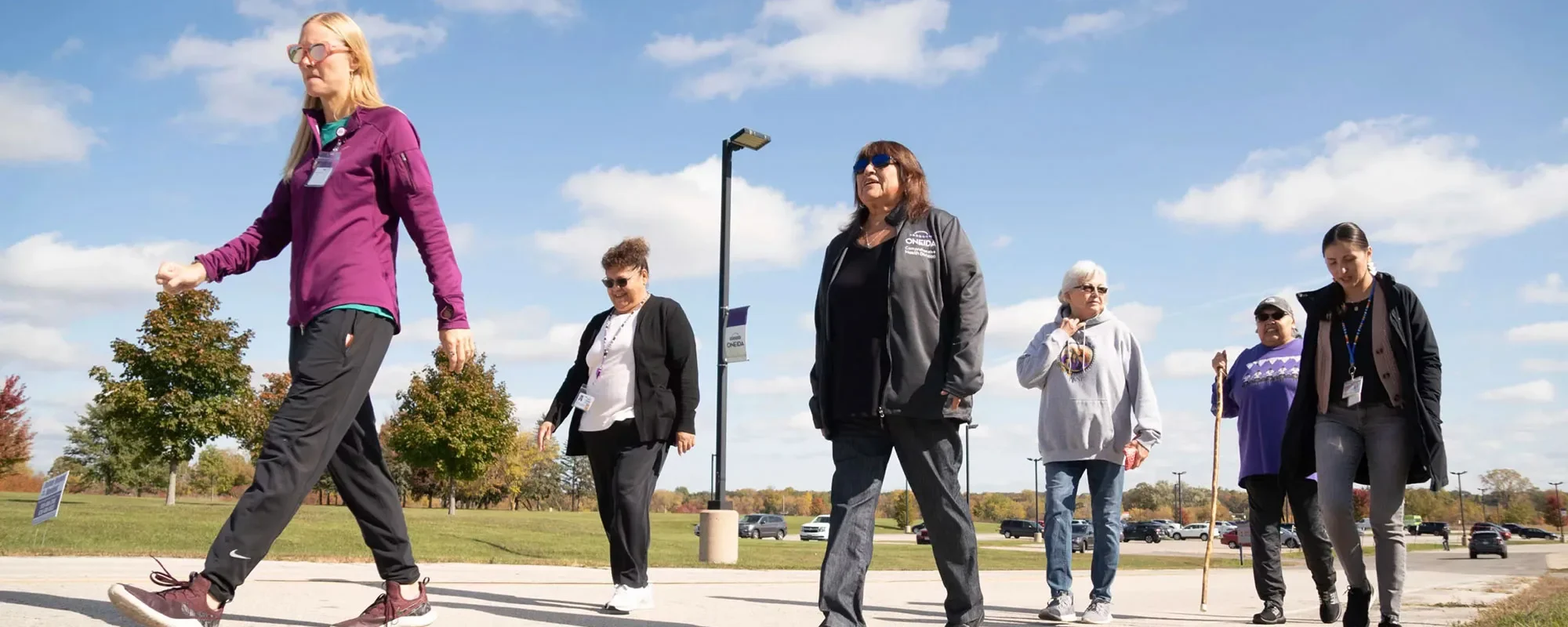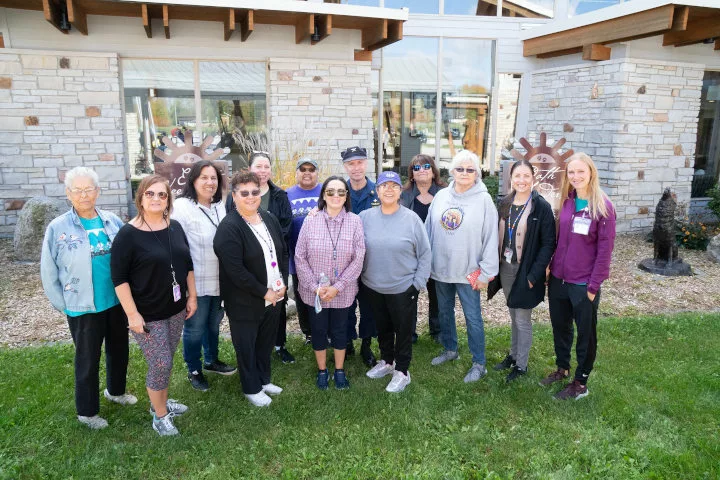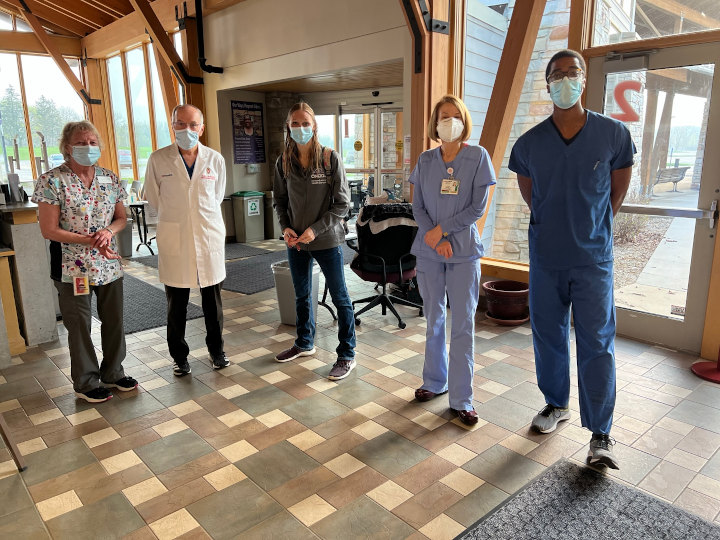The partners raise tribal awareness about the importance of modifying stroke risk factors, including hypertension, smoking, and diabetes. Culturally sensitive information is provided for people of all ages, including children, who receive material about identifying signs of stroke in elders as well as educating them about establishing healthy habits at an early age.
At the individual level, participants receive health history screenings and are evaluated for vascular cognitive decline, presence of prior stroke, and other cardiovascular disease risk factors and symptoms.
Riesenberg works with individuals who have been identified as high-risk for stroke. She focuses on cooking, dietary and exercise programs, and medication logs with the goal of achieving strict management of cholesterol levels, blood glucose, blood pressure, weight, diet, and exercise.
The bi-directional approach to this partnership has united the cultural expertise of the Oneida community with the clinical expertise of the research team.
“The team’s consistency and willingness to travel here each month, and the cultural humility with which they approach this project have been key to its success,” said Melissa Metoxen, NACHP assistant director and member of the Oneida Nation. The partners are committed to ensuring that the stroke prevention program is effective and culturally sensitive.
“We have much to learn from the tribe in terms of culture and their approach to holistic health care,” said Dempsey. “The Oneida community wants to learn how to disseminate what is learned here to benefit the broader Native American community as well.”



